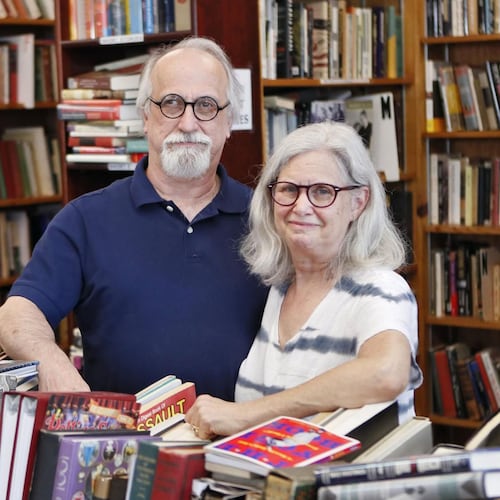Not many people could find it in themselves to make a joke about undergoing a double amputation.
Then again, not many people are like Martin Burrell. His first letter home after losing both his legs in World War II read, “I guess I won’t have to worry about cold feet anymore,” said his son Alvin Burrell of Atlanta.
Young Martin Burrell, just shy of 19, was serving as a combat engineer in Europe when he was shot in the legs by a hand-held rocket. The result was a double amputation, one above the knee and one below, forcing him to rely on the use of artificial legs.
But Martin Burrell never let his injuries define who he was, and he was determined to continue living his life just as he did before, Alvin Burrell said.
“He had an unwillingness to let what happened to him as a result of war dampen his lifestyle,” the son said. “He made the decision that he was still going to live.”
Martin Burrell returned to Georgia to attend Young Harris College in 1946 after months of rehabilitation in a military hospital. He later attended Emory University, from which he graduated in 1951 with a master’s degree in mathematics.
His first job was teaching math and physics at Warner Robins Air Force Base, where he had to climb three flights of stairs to reach his classroom, his son said.
“He said he ‘didn’t think that a handicap should be considered as anything but another hurdle to overcome,’ ” Alvin Burrell said of his father. “He wasn’t going to let anything hold him back.”
Martin Omar Burrell died March 13 from complications of a prolonged illness at his home in Hiawassee while under the care of Regency Hospice. He was 88.
His funeral was held March 16 in the chapel of Banister Funeral Home, which was in charge of the arrangements. He was buried at Russell Family Cemetery in Hiawassee.
Burrell left Warner Robins in 1957 and began working as an associate scientist and nuclear analyst at Lockheed Aircraft Corp., where the primary focus of his research was radiation shielding for aircraft and armored vehicles.
After four years at Lockheed, Burrell began his 14-year career with NASA at the Marshall Space Flight Center in Huntsville, Ala., where his work greatly contributed to the American space program and was used in later space exploration. He received several awards for his work, including being named “a leader in American science for the years 1968 and 1969,” his son said.
Burrell retired from NASA and moved back to Hiawassee in 1975. But his retirement was short-lived, for he soon returned to his love of teaching, this time at nearby Tri-County Community College. He taught there eight years before retiring for a final time.
In addition to his many jobs, Burrell was active in his community, where he served as the treasurer of Towns County and as a member of the local hospital authority and planning board. He was loved and respected by all those who knew him, former Towns County Sole Commissioner Truman Barrett said.
“He had the respect of the total community,” he said. “And I think it was because the way he approached life. I never heard him say he couldn’t do something because he was handicapped.”
Throughout his entire life, Burrell had made it a point to live with wild abandon. His optimism was immense, and his tenacity for life despite his conditions served as an inspiration for many, said longtime friend and caregiver Wayne Hundley.
“He encouraged people because they could see what he was facing,” Hundley said. “He never let things get him down, including losing two legs. He was just remarkable.”
In addition to his son, Burrell is survived by his wife of 67 years, Jennie Tallman Burrell of Hiawassee; one more son, Eric Burrell of Hiawassee; a daughter, Alice James of Augusta; and three grandchildren.
About the Author
The Latest
Featured

